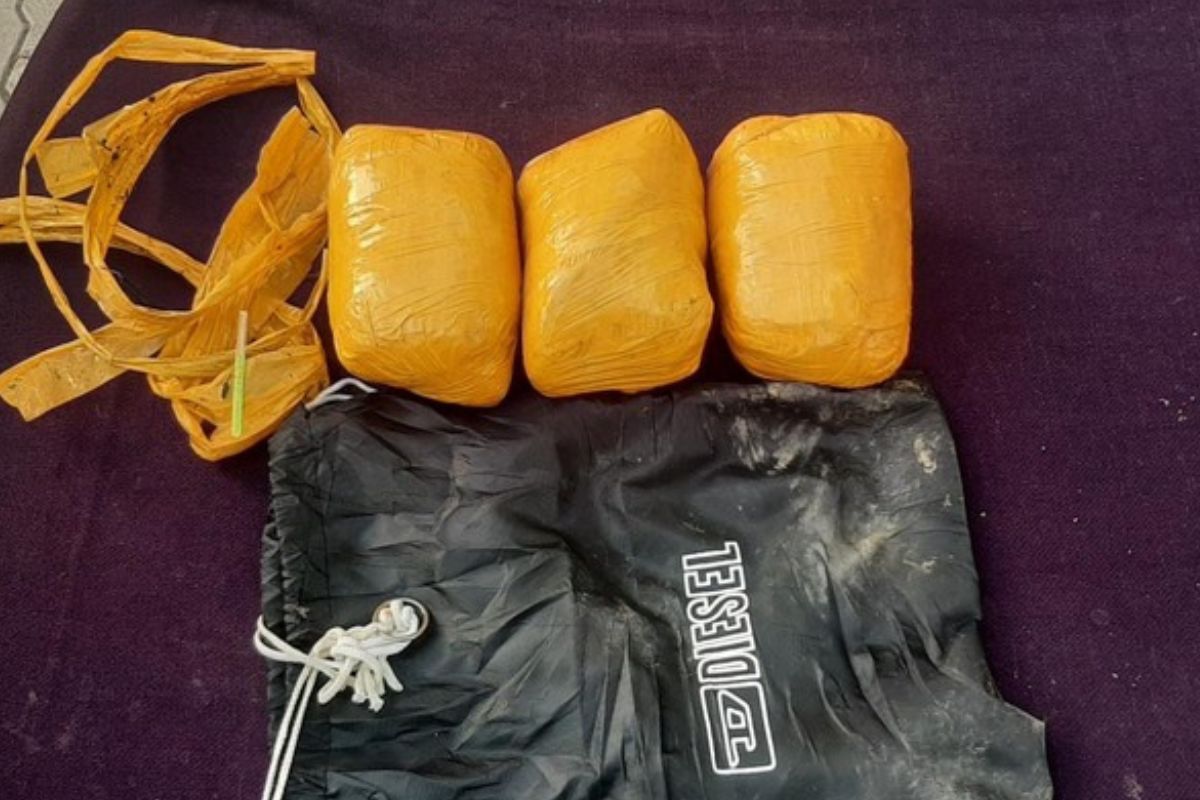Myanmar Dilemma
China’s delicate and evolving role in Myanmar’s escalating civil war underscores the country’s shifting priorities in the region and the risks of balancing support for a faltering junta with the need for border stability.
In the midst of a significant influx of Myanmarese nationals fleeing persecution, Mizoram police have seized 3.4 kilograms of heroin worth Rs 1 crore at Selesih, near Aizawl.

Packets of heroin representation image (Photo: ANI)
In the midst of a significant influx of Myanmarese nationals fleeing persecution, Mizoram police have seized 3.4 kilograms of heroin worth Rs 1 crore at Selesih, near Aizawl.
The contraband was discovered in the possession of CT Liana, a 25-year-old Myanmar national and resident of Tahan in Myanmar.
Following his arrest, Liana was remanded to police custody for 72 hours for further questioning, according to official sources.
Advertisement
The seizure highlights the ongoing challenges faced by Mizoram as it grapples with both — a humanitarian crisis and issues of drug trafficking. The local market value of the seized heroin underscores the scale of the drug trafficking problem in the region.
In recent days, more than 1,390 Myanmarese nationals have crossed into Mizoram, seeking refuge from the violent clashes between armed forces and civil militia groups in Myanmar. These refugees, primarily from the Chin State, have found sanctuary in various villages across Mizoram.
Since the military coup in February 2021, which ousted the democratically elected government of Myanmar, Mizoram has become a critical refuge for those escaping the ensuing violence. The state shares a 510-kilometre border with Myanmar’s Chin State, making it a natural destination for fleeing civilians.
The Union Home Ministry has recently decided to end the free movement regime with Myanmar, implementing a fence along the border. This decision has been met with strong opposition from the Mizoram government. The Mizoram State Assembly passed a resolution against the central government’s decision, emphasising the deep cultural and ethnic ties shared between the people of Mizoram and the refugees from Myanmar.
Mizoram officials argue that the refugees share a common ethnic identity with the local population, referring to them as ethnic brothers. This cultural connection is a significant factor in the state’s response to the refugee crisis.
Currently, over 35,000 Myanmar nationals are sheltered across various districts in Mizoram. The state government, along with local communities, has been actively providing support to these refugees despite limited resources and the additional strain on local infrastructure.
The ongoing crisis in Myanmar and the subsequent influx of refugees into Mizoram underscore the complex interplay of humanitarian concerns, ethnic solidarity, and security challenges. The state continues to navigate these challenges while providing refuge to those in need.
Advertisement